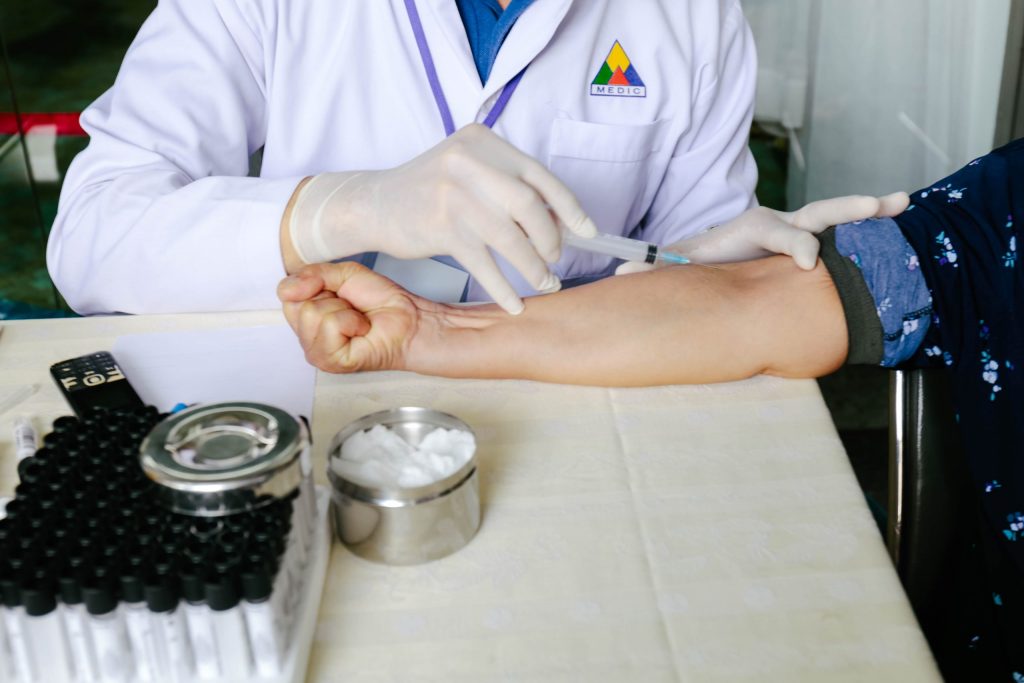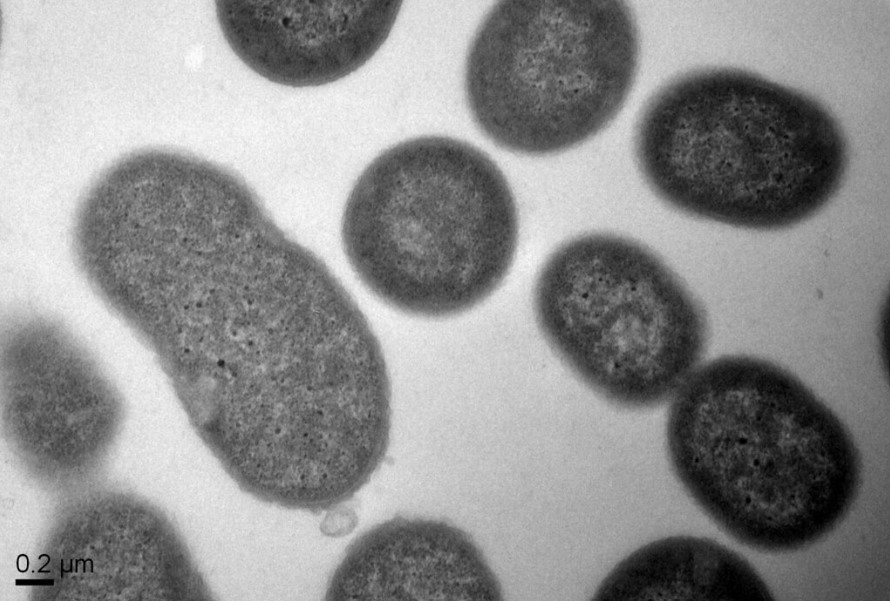How did Elon Musk grow his hair back? 6 Options
If you are currently reading this article, you’ve probably noticed that Elon’s hair has changed quite a lot and looks

Cancer is a personal and potentially intimidating topic. According to Our World in Data’s 2019 statistics on cancer, every sixth death is caused by the disease, making it the second leading cause of death in the world. If you know someone who has been diagnosed with cancer or have been diagnosed yourself, you know that diagnosis and treatment isn’t the start of answers, but rather an introduction to a seemingly endless amount of questions.
What can happen to you while you undergo chemotherapy treatment? How can you manage chemotherapy symptoms? Below, you can find some commonly reported chemotherapy symptoms, and recommended ways to reduce their severity.
Constipation, diarrhea, and other gastrointestinal problems like bloating, stomach cramps, and nausea can occur while on chemo. Your gut has a delicately balanced biome that medicines and treatments — especially those as extreme as chemotherapy — can disrupt, leading to discomfort. However, there are ways that you can help protect and supplement your gut health during treatment.
Proper hydration is incredibly important if you’re experiencing constipation or diarrhea because these symptoms can make you even further dehydrated. Eight glasses of water a day is recommended for the average person, but people being treated with chemotherapy may want to drink closer to 10 or 12.
University of California San Francisco’s health sector recommends 25 to 30 grams of fiber a day that does not come from supplements. Fiber supplements, probiotics, and multivitamins can be taken after you’ve reached this threshold to further combat intestinal symptoms, but reach for foods first. Some foods that are rich in fiber are:
Foods high in salt and fat can dehydrate you, which can exacerbate intestinal discomfort. Fast food and high-fat foods may also generally lack the nutrients your body needs when combatting a serious illness. Excess oil and carbohydrates can also contribute to or worsen intestinal distress.
Chemo can take a hard toll on the body, and this could be reflected in development of certain vitamin deficiencies. Being low in vitamins like B12 and vitamin D can be linked to poor intestinal health and negative side effects. There are ups and downs to taking certain multivitamins and supplements over the counter, especially as your metabolism and tolerances change while undergoing chemo. However, for those who have consulted their doctor, the right supplements may make a difference in symptom management.
Chemotherapy can be an exhaustive experience on both an emotional and physical level. You may notice increased fatigue or muscle weakness, causing you to tire faster when performing common actions like standing, walking, and doing household chores. Fatigue and muscle weakness can cause you to feel helpless or frustrated with your body’s inability to perform like it used to. The good news is that there are some ways to help combat fatigue during chemo.
Dehydration can increase fatigue and worsen other symptoms, so it’s important to stay hydrated. Since hydration key to managing many chemo symptoms, feel free to experiment with fruit-infused water, carbonated water, or different decaffeinated teas to add variety.
Psychological factors, like a break in your routine, can increase fatigue. If you need to take naps throughout the day, especially after performing tasks, that is perfectly okay — but try to keep your bedtime and wake-up time around the same as you normally would. Maintaining your bedtime routine will help keep your circadian rhythm on track, which can lessen symptoms of general fatigue.
Physical exercise is a great way to combat fatigue, but it may not be possible for everyone, depending on the severity of their symptoms. If you can’t engage in physical exercise, try activities that focus on the mind and body. Puzzles, card games, and memory games can help combat feelings of fogginess and fatigue. Taking up new hobbies like knitting, embroidery, or cross-words can help you keep your brain engaged, and make your time feel fuller.
Signs of fatigue can be similar to the signs of depression. If your fatigue becomes unbearable, or you’re experiencing a lack of motivation or desire, talk to your doctor or mental health provider.
Hair loss generally happens over time, whether due to age, the maturation of the hairline, or male pattern baldness. Additionally, acute and rapid hair loss can be caused by chemotherapy. Alopecia can also cause hair loss all over the body, in both men and women, and can be a side effect of chemotherapy. Fortunately, there are options to help facilitate hair growth, both during and after chemo. A few examples are listed below.
Supplements that target and strengthen the natural proteins in hair, like keratin and collagen, can help prevent or reverse hair loss. Oftentimes these supplements are water-soluble and flavorless, which means you can take them mixed into a glass of water. This is not an instant solution, but is a good one for those interested in a more natural approach to hair regrowth.
Cosmetic hair implants can take many forms. From non-permanent solutions like wigs or toupees to semi-permanent solutions like extensions, weaves, or hair-thickening fibers, to permanent solutions like implant surgeries. Each has its merits, depending on the stage of hair loss you are experiencing and the desired look outcome.
Specifically designed for chemo patients, cold caps help fight hair loss during active chemo. They use various cooling methods depending on brand or type, like a frozen gel that needs to be refrozen after use, or a refrigeration system that circulates cold temperatures throughout the garment and that requires a plug-in. According to Breastcancer.org, as of March 2019, cold caps were 50% to 65% effective for chemo patients, especially those who received taxane chemotherapy. Cold caps can cause discomfort, but have no currently reported health risks.
Since chemotherapy targets your own immune system while fighting cancer’s ability to multiply, it can drastically decrease your ability to fight infections and viruses. It’s important to know what strategies can help you mitigate this heightened risk during your cancer treatment. Listed below are only a few crucially important strategies to lower your risk of infection — for a detailed list refer to Cancer.org’s Watching For and Preventing Infections page.
Showering or bathing daily is recommended to kill bacteria in commonly sweaty areas, like your armpits, and high germ-traffic areas, like your feet. Similarly, being hypervigilant about handwashing can decrease your risk of infection on a daily basis. This is also a great tip for anyone you live with so that you can all interact together without anyone having to worry about being a heightened risk factor.
It’s recommended that cancer patients do not swim or wade in lakes, ponds, pools, hot tubs, water parks, or any other man-made or naturally occurring water. The germ-contact risk is incredibly high in these areas, especially if you have any minor cuts, scrapes, or an installed chemo port. The same is true of standing water, like vases with living flowers, birdbaths, and pet dishes, which can be common breeding grounds of all kinds of bacteria.
Alcohol-based hand sanitizer is helpful for keeping your hands clean in public after touching common surfaces like ATMs, keypads, door handles, and other high-traffic objects. It is also helpful to carry around a small bottle of lotion, as alcohol-based sanitizers can dry out your skin and cause it to crack or bleed, which can then turn into risk areas for germs.
Chemotherapy is an incredibly intense type of treatment. Your body’s defense mechanisms may perceive chemotherapy drugs as a threat and try to expel them, causing intense nausea and vomiting.
Chemo can also cause a change or decrease in appetite. It is very important to monitor this symptom, as excessive vomiting can cause severe dehydration, malnutrition, and weight loss with unexpected side effects. In some cases, prolonged vomiting has caused internal damage, which could be fatal due to increased infection risk. There are ways you can manage nausea and vomiting induced by chemo, but if you experience prolonged or intense symptoms, it’s important to contact your cancer care team.
While you are feeling nauseated, stick to foods that are easy to digest, such as crackers, rice, toast, apple sauce, yogurt, potatoes, and other foods without complex flavors. Eating something with a distinct smell or taste while nauseated may cause a lasting association with that food that may cause you to feel sick each time you encounter it.
An empty stomach can sometimes worsen nausea, so try to eat something every two to three hours. This can help you fight nausea, maintain energy, and keep your body nourished and healthy.
Sometimes take a routine anti-nausea prescription can seriously curb nausea and vomiting — although watch out for worsening constipation or intestinal distress if you do. If you aren’t ready to go that serious yet, there are some solutions available over the counter, such as queasy drops, that can help by utilizing drug-free natural solutions, like ginger, honey, and peppermint.
This is the most important way to manage your symptoms and make sure that you are as safe and healthy as possible during chemo treatment. Chemo patients may be assigned a cancer care team by their hospital, and that team, along with your doctor, is there to answer your questions, help you lower your risks, and provide the best care possible. If you’re unsure about contacting your doctor, taking a genetic test may be able to help you. This can help you detect genetic mutations associated with diseases like breast cancer, or even help with anticipating the severity of some of your symptoms while being treated with chemo. It is important to note that a genetic test is not a replacement for the opinion of a medical professional, but rather a tool that can help you, and your doctor, manage your case more efficiently.
The important thing to remember is that no cancer patient should feel like they have to navigate their experience alone. Staying in contact with your doctor, leaning on your loved ones, and caring for your body are some of the best ways to help combat the side effects of chemotherapy.
If you are currently reading this article, you’ve probably noticed that Elon’s hair has changed quite a lot and looks

How Does Swimming Affect Your Body? Individuals swim for a variety of reasons including recreation, competition, and health. Regardless of

Lifestyle Tips For Better Overall Health The way you go about your daily life has a massive and direct impact

How Do Infections Work and What Are Their Effects on the Body? From Hippocrates’s writings about the spread of disease

How To Make a Good Impression in a Job Interview When it comes to getting a job, interviewing may seem